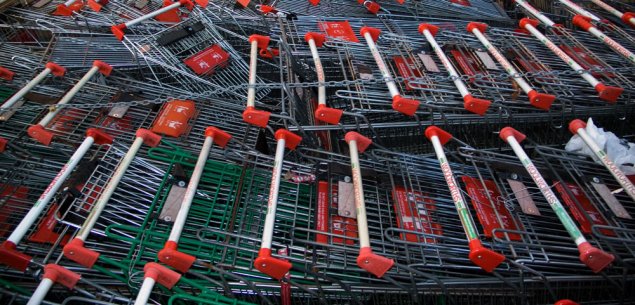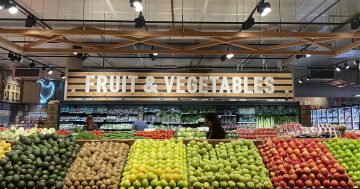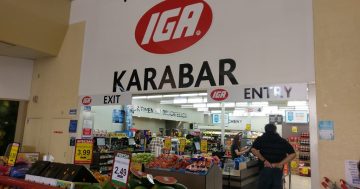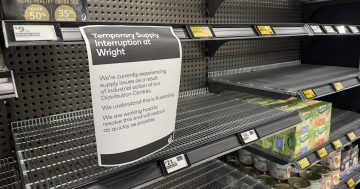
A few years ago the ACT Government had a bright idea to confront the problem of the power of the supermarket giants. It introduced a policy to encourage more competition to the usual two or three. It didn’t deliver.
While much was made of this policy when the government’s bureaucracy was developing their so-called master plan for the Dickson shops, the reality is that the proposed new supermarket complex will house just more of the same. Admittedly it was a brave move given that other local governments have not found a way to establish real alternatives to the corporations who dominate Australia’s supermarket sector.
With many shopping centres now containing two or more of the big three, shoppers are voting with their feet. What may have been attractive one day, can fall out of favour. The power of the consumer can still deliver.
Meanwhile back here in Dickson we are awaiting the next proposal for the supermarket development given the failure of the first. Once the developers come up with a successful proposal for the new Dickson supermarket complex, there is no doubt it will deliver nothing new as the expectation remains that shoppers will have the same three corporations to choose from. Many residents will be happy about this while others will simply wonder about the government’s lack of expertise and commitment to bring about a different mix of shops to Dickson.
I shop at the Dickson Woolworths—but it is more about convenience rather than any notion of enjoying shopping. Plus I am very aware that their discounted prices are offset with adjustments to other items. Like so many people I know, when I shop at these big supermarkets I do so with a sense of reluctance. As often as possible I look to do business with smaller retailers.
However there are signs that smaller retailers can manage to find a niche market despite the dominance of the big corporations. In Dickson in the last few years there have been a few survivors, namely a butcher, plus a second butcher who has recently branched out into a range of other small goods and we still manage to have a small fruit and vegetable shop. Luckily where I live I can walk 15 minutes in one direction to the Ainslie IGA, 10 minutes walk to the Dickson shops and Woolworths and a few more minutes drive to a SupaBarn Express at Watson (SupaBarn Express was not sold to Coles).
While there are immediate benefits to your purse when you find the best discounts amongst the big supermarkets, we do so knowing that the corporations provide these low prices by slowly driving our farmers and small to medium food manufacturers out of business. History is repeating itself here. The business of pushing out the distances between the food production and the retailer has been done many times in human history ultimately with serious consequences.
There are many books on this that you would hope that some of our politicians and decision makers would be reading. One is about the empires of food. The authors also have presentations online that are worth watching.
Sadly most of the signs are that the government and its bureaucratic advisors are stuck in a time warp and have a fear of change. I do not pretend to be able to provide simple solutions to how we deal with the dilemmas of what is the best supermarkets, best shopping centres and associated best long term sustainable arrangements for the provision of good healthy and affordable food for our tables.
What is happening right now in Dickson is a case study of how governments should be engaging with the locals and using available research to work through at least some of these issues to come up with developments that actually make sense and are relevant to this inner suburban area for the next part of the 21st Century.
These debates are worth having. All thoughts welcome.





















